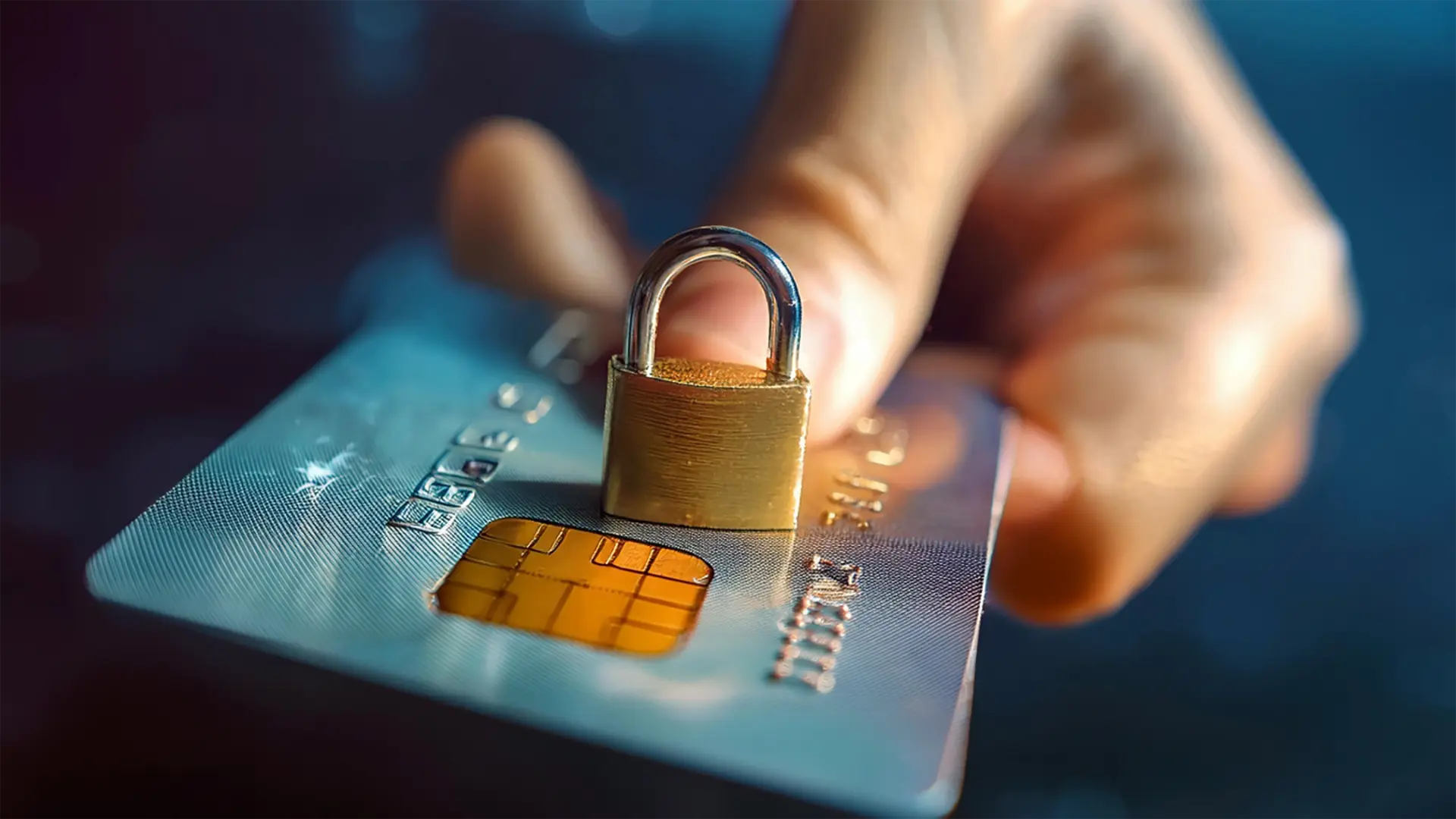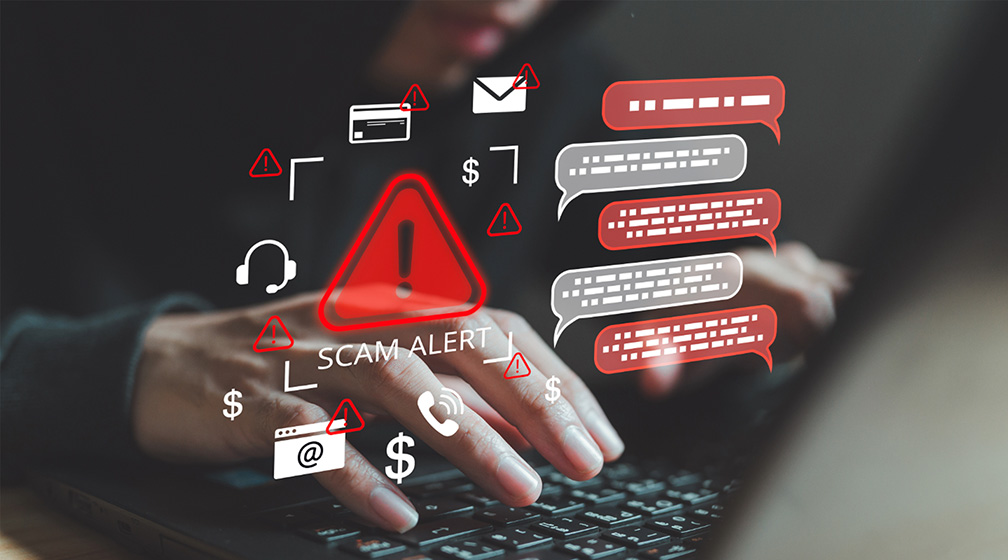
Venmo is a mobile payment app that allows users to easily send money to one another, and even pay for goods and services with vendors that accept it. But the app’s convenience and popularity also make it a popular target for scammers.
In 2024 alone, 83% of Americans reported being scammed or targeted for fraud on payment apps. If you use Venmo, it’s important to know the signs of a scam so you can protect yourself. Here are some common Venmo scams to avoid.
Understanding Venmo Scams
Venmo and other payment apps or services are frequent vehicles for scams, and they are growing in popularity.
Data from the FTC shows that consumers lost $391.0 million to fraud through payment apps or services in 2024, an 86.3% increase from the 2023 total of $209.9 million.
So far this year, payment app scams and fraud continue to be on the rise. The same report from the FTC shows a 60.9% increase in fraud through payment apps in Q1 of 2025 compared to Q1 in 2024.
Common Venmo scams use phishing, social engineering, and other dishonest methods to trick users out of their money. Understanding common types of payment app scams that often feature Venmo can help you avoid falling for them.
Common Venmo Scams
With new scams constantly emerging, the variety of fraudulent schemes seems endless. Venmo, like many digital payment platforms, is frequently exploited in these schemes. Below are some of the most prevalent ways scammers use Venmo to take advantage of people.
Phishing Scams
With phishing scams, a criminal impersonates a legitimate organization (such as Venmo, your bank, a charity, or a government organization) to get you to take an action like clicking a fake link, providing personal data, or downloading a virus. Many of the scams included below involve some variation of phishing.
Accidental Payments and Overpayments
One common scam involves a stranger sending you money on Venmo, then messaging you outside the app or commenting on the transaction to ask you to return the money they “accidentally” paid. But the scammer actually used a stolen credit card to send the payment, and they’ll keep the money you return. If the payment they sent to your Venmo account gets reversed due to fraud, you won’t have any means to recover the money.
A variation of this scam is the “overpayment” scam, where you have a deal worked out with someone to send you money, but they end up sending you too much. You send back the excess funds, but the original payment soon gets reversed because it was fraudulent.
Fake Customer Support Scams
Criminals may pose as customer support via email, text, or even over the phone and tell you that there’s an issue with your account.
You may be instructed to call a specific phone number, click a fake link to “reset your password,” send a “test transaction,” provide your debit or credit card info, or even turn control of your computer over to a fake help desk. But you’re actually providing this information or sending funds to a scammer.
Note: Venmo states on their website that Venmo customer service will never ask for your Venmo Debit Card numbers or request that you download another application.
Fake Marketplace Listings
Marketplace websites like Craigslist and Facebook Marketplace can contain fake listings for products that don’t really exist. The seller will request that you pay to reserve a product you haven’t actually seen in person, then keep the money and ghost you.
The flipside of this scam is when you have something listed for sale online. Scammers will pose as an interested buyer and ask for your email address or phone number to pay you via Venmo, then send you a fake Venmo message claiming that you’ve been paid, in the hopes that you’ll click a malicious link or ship the item without noticing you never received any money.
Cash Flipping and Investment Scams
There are many variations of the “cash flip” or investment scam, where a scammer contacts you pretending to be an investment expert, financial advisor, or entrepreneur.
No matter the details, they’ll ask for an investment from you to flip for a profit. The scammer actually wants to pocket your initial investment, or pay you a small profit back to lure you into sending a larger sum.
Romance Scams
Dating apps and romance websites provide a platform for scammers who pretend to be interested in you and even pledge their undying love – but they will have reasons not to meet in person. Eventually, they will ask you to send money via Venmo and may even try to string you along for a series of payments.
Charity Scams
In the wake of tragedies like natural disasters, criminals may set up charity websites or social media accounts to scam well-meaning citizens who just want to help. If you use Venmo to pay a fake charity, you will have difficulty recovering your funds.
Apartment Scams
Fake apartment rental listings may lure victims with affordable rent and attractive living spaces. But the scammer behind the listing may ask you for an upfront security deposit or your personal information like your driver’s license or social security number, and the rental will never materialize.
Pet Scams
Criminals may also list a fake pet adoption online and request a security deposit to “reserve” the animal. But the pet doesn’t actually exist, and the scammer will keep your money.
Sweepstakes Scams
You may receive a message claiming to be from Venmo or another organization and offering you a prize. But to cash in your sweepstakes “winnings,” you’ll need to click a fake link and provide account login details for Venmo, with a scammer on the other end to collect your info.
Money Request Scams
Someone may impersonate a friend, family member, or other acquaintance using AI voice cloning, phishing emails, deepfakes, or social media and ask you for money for an emergency. But once you send your “friend” money on Venmo, you’ll never hear from them again.
What to Do If You Experience a Venmo Scam
Take the following steps if you encounter a Venmo scam:
- Report scams to Venmo. You can report scams in the app from the transaction or the profile of the scammer, on the Venmo website, or by emailing support@venmo.com.
- Report fraudulent transactions to your bank. Report unauthorized transactions and payments to scammers to the bank you linked to your Venmo account. Continue to monitor your bank account to look for fraud.
- Report scams to the Federal Trade Commission (FTC) and the police. It can be beneficial to report certain types of fraud to the FTC and the local police. At the very least, having copies of an FTC complaint or police report can help you quickly prove you were a victim of fraud in the future.
- Turn on security features in Venmo. Enable security features to protect your Venmo account, including:
- Biometric or PIN-based passcodes
- Private transactions that hide your activity in the app
- Call IdentityIQ. We can provide basic instructions to anyone who fell victim to a Venmo scam – including basic steps for how to respond. And if you’re an IdentityIQ member, we can help you report scams to the authorities and quickly put a stop to future fraud. Log in to your account or call us at 877-875-4347.
- Get identity theft protection. If you don’t already have an identity theft protection service, now is the best time to get one. Identity protection services can monitor your identity for signs of fraud, alert you whenever fraud occurs, and help you quickly recover from scams. See how IdentityIQ compares to other brands like Aura, LifeLock, and Credit Karma here.
Venmo Scam FAQs
If you were tricked into a Venmo scam, or are worried about being a victim, you probably have a lot of questions. We answered some of the top questions we get from Venmo users below.
Is Venmo safe to use with strangers?
It can be safe to use Venmo with strangers if you take care to avoid scams and verify the user’s identity. But it’s generally the best idea to only use Venmo with people you already know and trust.
Will Venmo refund money if you get scammed?
Venmo offers no guarantee that your money will get refunded if you are scammed. It’s a good idea to use more secure means of payment, such as credit cards, when paying someone you don’t know.
Can a Venmo payment be reversed?
According to Venmo, there is usually no way to cancel a payment once it is sent. There is one exception: if you send a payment to an email address or phone number that isn’t verified or associated with a Venmo account, you may be able to cancel the payment while it’s still pending.
How can I report a scam on Venmo?
You can report scams in the Venmo app from the transaction or profile of the scammer, by navigating to Venmo’s website, or by emailing support@venmo.com.
Using Venmo Safely
Common Venmo scams are often simple but effective methods that can trick users out of their money. By recognizing common scams and only using Venmo to pay people you know, you can avoid a wide variety of scams and keep yourself safe on payment apps.
How IdentityIQ Can Help
Criminals tend to go where the money is, so it’s unlikely they will stop targeting Venmo and other payment apps anytime soon. IdentityIQ can protect you from scams by monitoring your identity to look for fraud, warning you when fraud occurs, and helping you recover if you do get scammed.
Don’t wait until you get scammed to get help. Sign up now to receive access to comprehensive protection and keep your credit, finances, and identity safe.







